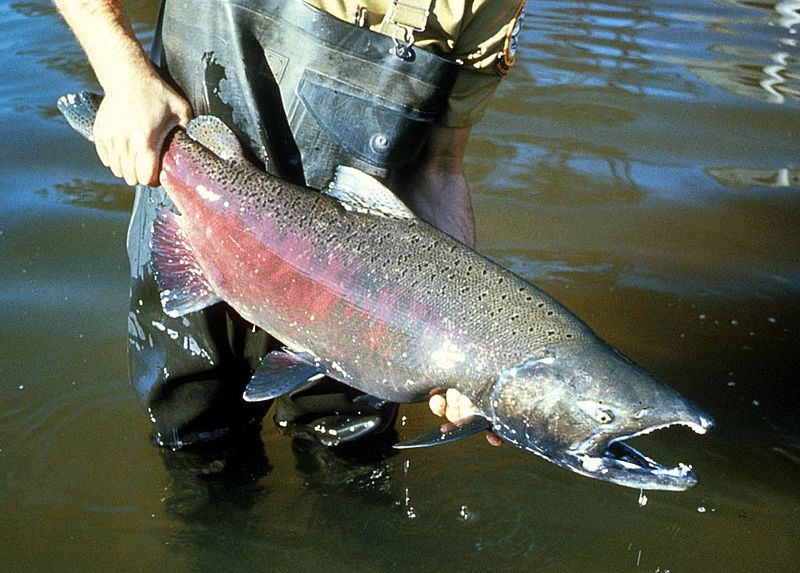After much controversy and deliberation over a new species of genetically-modified salmon, this fish, American company Aqua Bounty's GM Atlantic salmon, is the first to be declared safe to grace our plates.
The US Food and Drug Administration (FDA) has recently revealed that it could not find any bona fide reasons for prohibiting the release of the GM salmon into the consumer market. The product currently poses no threat to human health, but, being a genetically-modified species, it's existence raises issues about any potential dangers.
Having completed my Geography GCSE at the end of the last school year, this topic piqued my interest. I had studied the 'GM Revolution' and investigated the advantages and disadvantages of such developments; in total honesty, the problems far outweighed the profitability. What I was interested to find out about was how the company behind the fish, Aqua Bounty, had managed to minimise any risks in order to reassure the FDA so well.
The genes of a wild Atlantic salmon were engineered with genetic material from the Pacific Chinook salmon and the Ocean Pout.
The Chinook salmon is more commonly known as the spring salmon, and is the largest of the salmon family. It's flesh is high in nutritional omega 3 fatty acids.
This 'eel-like species', the Ocean Pout, has "antifreeze proteins in its blood, giving it the ability to survive in near-freezing waters." Thus enabling the GM salmon to grow all through the year, as it is able to survive and feed in the colder seasons.
The new salmon is designed to live in inland fish-farms, reducing the risk of the GM species meeting its wild cousins out at sea. On the off-chance that the two do meet, the escapees would be unable to reproduce as they each have three copies of each chromosome, producing sterile female GM salmon. Due to the placement of the inland fish-farm tanks, the GM salmon will be closer to its destinations, therefore reducing transport costs and carbon emissions.
Currently, fish stocks and marine ecosystems are under extreme stress from overfishing and destructive fishing techniques. Pro-GM scientists argue that rearing the salmon in fish-farms will be much more environmentally-friendly.
A 'draft environmental assessment' was published last Friday, 21st December, announcing the GM salmon fit for human consumption. But with so many objections to genetically-modified products, who knows how well this particular fishy will swim?
Would you be happy eating GM foods?
References: Wikipedia, BBC News, The Independent
Would you be happy eating GM foods?
References: Wikipedia, BBC News, The Independent



It's a good job you don't eat salmon.
ReplyDelete